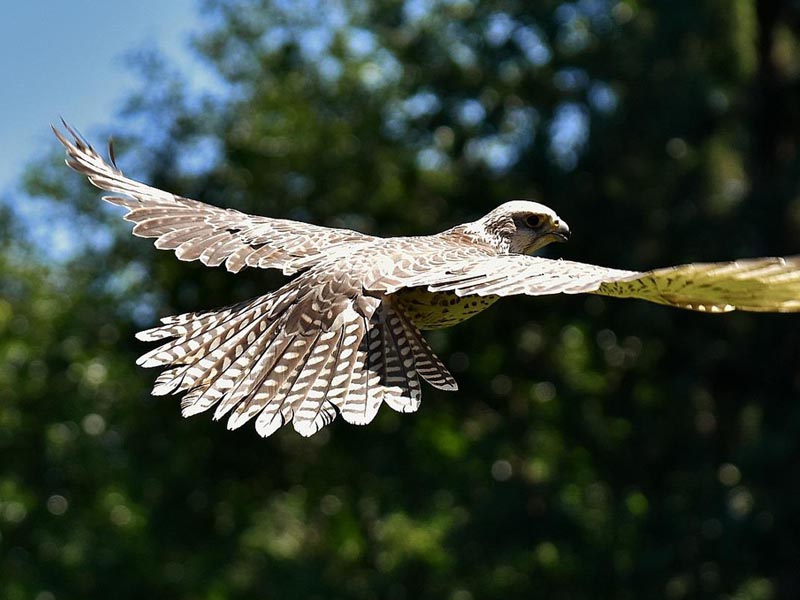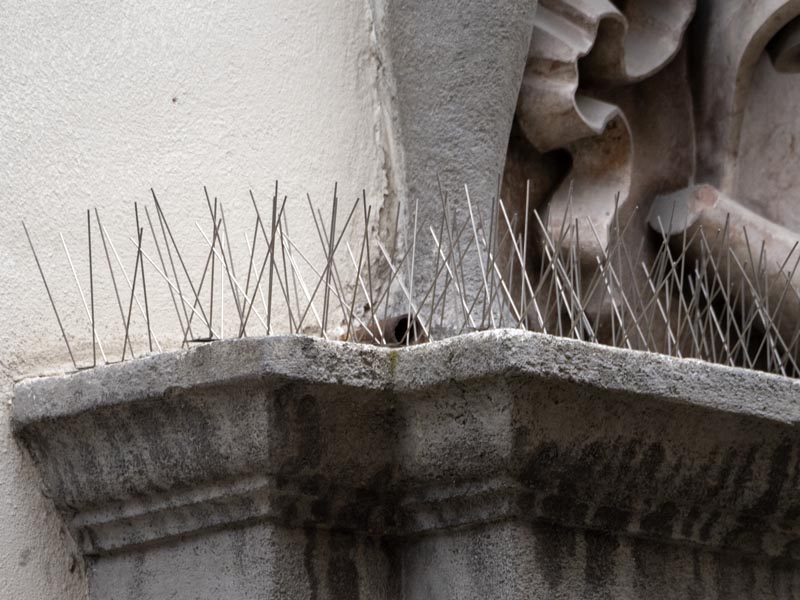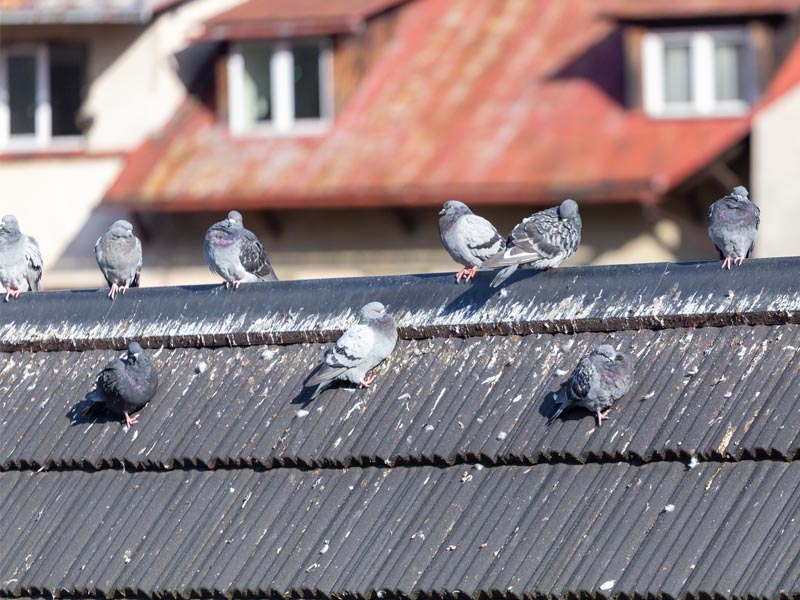Pigeons are often regarded as pests due to their nuisance behaviour. Often referred to as rats of the sky, pigeons are scavengers who often rely on grain as a source of food which is why they are frequent pests of environment or agricultural sites, food processing plants, public parks, and restaurants in big cities.Pigeons can also carry diseases which can spread to humans through their faeces. Frequent defecation can cause unsightly appearance to buildings and pavements as well as damage properties by as it is corrosive and can erode brickwork or even steel. More information on hazards posed by pigeons can be found here.
Behaviour of Pigeons
Feral Pigeons are one of the most common birds in the UK and as such are well renowned for being a pest causing problems for both businesses and home owners.
Pigeons gather in large groups, a behaviour known as roosting where they congregate on rooftops or ledges around buildings.
They are always on the lookout for food and in densely populated areas they are often inadvertently fed by humans who drop food waste. They are also naturally attracted to bird feeders in our gardens.
How to Get Rid of Pigeons on Your Roof
Roof tops are a favourite place for colonies of pigeons to hide and nest as they are high up and feel safe. It is difficult to deter pigeons from your roof but there are a few options which you could consider.
Parallel wires or netting can be used to stop birds from landing on your roof, these work well but can be unsightly so probably aren’t always appropriate for domestic properties.
Anti-Bird Spikes are rows of metal or plastic spikes which can be fixed to roof tops to stop birds from perching and can be more effective for your home.
What do Pigeons Not Like?
As mentioned previously, pigeons are prey for larger birds such as kites, so the presence of larger domineering birds will scare them.
Pigeons do not like pungent smells such as pepper or cinnamon so treating areas with these can prevent roosting for short periods however this is not a viable long-term solution as the smell will quickly fade.
What are the Pest Control Options to Get Rid of Pigeons?
There is legislation in place to prevent the killing of Pigeons and other birds in the form on The Wildlife and Countryside Act 1981 meaning that other solutions need to be found.
There is no one size fits all solution to get rid of pigeons so your pest controller will be the best person to assess and provide advice the most appropriate solution. Here are some of the options available:
Falconry
As previously mentioned, pigeons are scared of larger birds of prey such as falcons or kites so using a Falconer can scare away pigeons and deter them for returning as they will believe the area is occupied by a predator.

Spike Strips
Spike Strips are strips of metal or plastic spikes which will not harm birds but will make it difficult for them to perch or nest in a particular area of the roof or ledge. They are often used on ridges where birds like to sit.

Wires and Nets
Wires can be placed in parallel lines across the roof to prevent birds from landing, likewise nets are used in much the same way but generally to block sheltered areas where pigeons like to nest.
Decoy Kites
Decoy kites can be used to scare pigeons as they are predators, and the pigeons will move on due to fear of being eaten! Decoy’s do not always work long term as their repetitive movement patterns can give them away as being a fake!
Gel Repellents
Gel repellents are a clear sticky solution which can be applied to a roof surface. When pigeons land, they get stuck and will have to struggle to get free. This prevents the pigeon from returning to the same place once it escapes as it will not want to experience this again.
How Can I Book a Pest Control Treatment for Pigeons?
A pigeon infestation can be stressful for many, so we will always do our best to provide a fast and effective solution.
FurBeGone Pest Control offer a free survey before, and treatment is undertaken. We cover Stevenage, Letchworth, Hitchin, and surrounding villages.
Contact us through our website here or for 24-hour callout please call us on 01438 387005.

